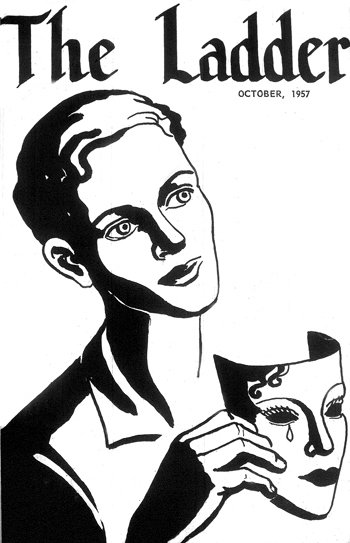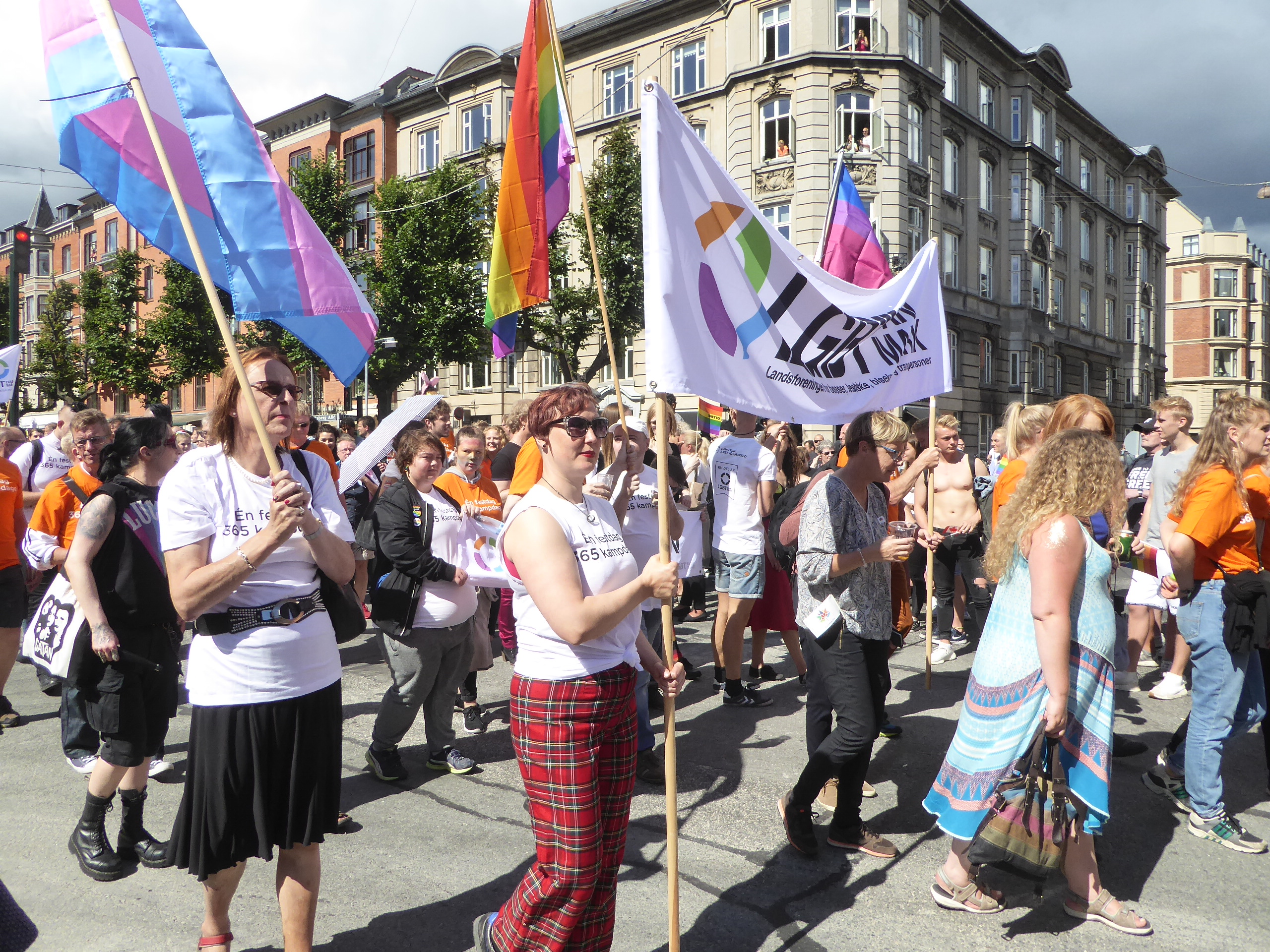|
Vennen
''Vennen'' (''The Friend'') was a Danish magazine for gay men published from 1949 to 1974. History In 1948, gay activists Axel and Eigil Axgil founded Denmark's first gay rights organization, Forbundet af 1948 (Association of 1948), now known as LGBT Danmark, in response to the publication of Alfred Kinsey's work ''Sexual Behavior in the Human Male''. ''Vennen'' was launched in 1949 as the official magazine for members of the organization; Helmer Fogedgaard was its first editor-in-chief until 1954 when he was replaced by Axel Axgil. Initially, the magazine was available only to members, but in 1951 it became available for sale at newsstands throughout Denmark, Sweden and Norway. On March 29, 1955, ''Vennen'' Copenhagen offices were raided by police after it became apparent that the magazine was distributing pornographic images of models under the age of 18. Copies of the magazine were seized by police and numerous staff members, including both Axgils and Fogedgaard, were arrested ... [...More Info...] [...Related Items...] OR: [Wikipedia] [Google] [Baidu] |
Homophile Movement
The homophile movement is a collective term for the main organisations and publications supporting and representing sexual minorities in the 1950s to 1960s around the world. The name comes from the term ''homophile'', which was commonly used by these organisations. At least some of these organisations are considered to have been more cautious than both earlier and later LGBT organisations; in the US, the nationwide coalition of homophile groups disbanded after older members clashed with younger members who had become more radical after the Stonewall riots of 1969. History The homosexual organizations and publications of the 1950s and 1960s, which commonly used the term "homophile", are now known collectively as the homophile movement. After the gains made by the homosexual rights movements of the late 19th and early 20th centuries, the vibrant homosexual subcultures of the 1920s and '30s became silent as war engulfed Europe. Germany was the traditional home of such movements (S ... [...More Info...] [...Related Items...] OR: [Wikipedia] [Google] [Baidu] |
List Of Magazines In Denmark
In Denmark there are various magazines with different frequency types, including weekly magazines, monthly magazines and quarterly magazines. As in other Nordic countries, the national consumer organizations publish their magazines in Denmark. In 2007, there were nearly 68 consumer magazines in the country which were mostly owned by Danish media groups. Of them 52 were monthly/quarterly whereas 16 were weekly. These magazines were grouped into four main categories: general-interest magazines, opinion magazines, TV and radio guides, and professional and scientific magazines. The following is an incomplete list of current and defunct magazines published in Denmark. They may be published in Danish or in other languages. 0-9 * '' 7 TV-Dage'' A * '' Aktuel Naturvidenskab'' * ''Alt for Damerne'' * ''Amine'' B *''Bast Magazine'' * '' Berlingske Tidendes Nyhedsmagasin'' * ''Billed Bladet'' * '' Bionyt'' * ''Bo Bedre'' * '' Bolius'' * '' Børsens Nyhedsmagasin'' C * '' Corsar ... [...More Info...] [...Related Items...] OR: [Wikipedia] [Google] [Baidu] |
LGBT Danmark
LGBT Danmark – Landsforeningen for bøsser, lesbiske, biseksuelle og transpersoner ( da, LGBT Denmark – The Danish National Organisation for Gay Men, Lesbians, Bisexuals and Transgender persons) is a lobby for gays, lesbians, bisexuals and transgender people. The association was founded in 1948 as ''Circle of 1948'' (''Kredsen af 1948''). The current name has been in use since November 2009; its former name, in use for 24 years prior, was Landsforeningen for Bøsser og Lesbiske, Forbundet af 1948, shortened to ''LBL''. The Norwegian Organisation for Sexual and Gender Diversity originated as the Norwegian branch of the Danish group. History The association's founder and first chairman was Axel Lundahl Madsen, later Axel Axgil, who held the chairman position until 1952. Inspired by the United Nations' Universal Declaration of Human Rights, in Paris on 10 December 1948, he, his partner Eigil Eskildsen (later also Axgil) and other friends founded the association under the nam ... [...More Info...] [...Related Items...] OR: [Wikipedia] [Google] [Baidu] |
Axel And Eigil Axgil
Axel Axgil (3 April 1915 – 29 October 2011) and Eigil Axgil (24 April 1922 – 22 September 1995) were Danish gay activists and a longtime couple. They were the first gay couple to enter into a registered partnership in the world following Denmark's legalisation of same-sex partnership registration in 1989, a landmark legislation which they brought about. They adopted the surname, Axgil, a combination of their given names, as an expression of their commitment. Biography Axel, born Axel Lundahl-Madsen, and Eigil, born Eigil Eskildsen, inspired by the 1948 UN Declaration of Human Rights, together with friends, founded ''F-48'' or ''Forbundet af 1948 (The Association of 1948)'', Denmark's first gay rights organization. By 1951, membership had grown to 1,339 with branches in Sweden and Norway. In 1985, F-48 became the Danish National Association of Gays and Lesbians (''Landsforeningen for Bøsser og Lesbiske, Forbundet af 1948'' or ''LBL''). The couple launched a magazine, '' Ve ... [...More Info...] [...Related Items...] OR: [Wikipedia] [Google] [Baidu] |
Homophile Movement
The homophile movement is a collective term for the main organisations and publications supporting and representing sexual minorities in the 1950s to 1960s around the world. The name comes from the term ''homophile'', which was commonly used by these organisations. At least some of these organisations are considered to have been more cautious than both earlier and later LGBT organisations; in the US, the nationwide coalition of homophile groups disbanded after older members clashed with younger members who had become more radical after the Stonewall riots of 1969. History The homosexual organizations and publications of the 1950s and 1960s, which commonly used the term "homophile", are now known collectively as the homophile movement. After the gains made by the homosexual rights movements of the late 19th and early 20th centuries, the vibrant homosexual subcultures of the 1920s and '30s became silent as war engulfed Europe. Germany was the traditional home of such movements (S ... [...More Info...] [...Related Items...] OR: [Wikipedia] [Google] [Baidu] |
Magazines Established In 1949
A magazine is a periodical publication, generally published on a regular schedule (often weekly or monthly), containing a variety of content. They are generally financed by advertising, purchase price, prepaid subscriptions, or by a combination of the three. Definition In the technical sense a ''journal'' has continuous pagination throughout a volume. Thus ''Business Week'', which starts each issue anew with page one, is a magazine, but the ''Journal of Business Communication'', which continues the same sequence of pagination throughout the coterminous year, is a journal. Some professional or trade publications are also peer-reviewed, for example the '' Journal of Accountancy''. Non-peer-reviewed academic or professional publications are generally ''professional magazines''. That a publication calls itself a ''journal'' does not make it a journal in the technical sense; ''The Wall Street Journal'' is actually a newspaper. Etymology The word "magazine" derives from Arabic ... [...More Info...] [...Related Items...] OR: [Wikipedia] [Google] [Baidu] |
Gay Men's Magazines
''Gay'' is a term that primarily refers to a homosexual person or the trait of being homosexual. The term originally meant 'carefree', 'cheerful', or 'bright and showy'. While scant usage referring to male homosexuality dates to the late 19th century, that meaning became increasingly common by the mid-20th century. In modern English, ''gay'' has come to be used as an adjective, and as a noun, referring to the community, practices and cultures associated with homosexuality. In the 1960s, ''gay'' became the word favored by homosexual men to describe their sexual orientation. By the end of the 20th century, the word ''gay'' was recommended by major LGBT groups and style guides to describe people attracted to members of the same sex, (Reprinted fro American Psychologist, Vol 46(9), Sep 1991, 973-974) although it is more commonly used to refer specifically to men. At about the same time, a new, pejorative use became prevalent in some parts of the world. Among younger ... [...More Info...] [...Related Items...] OR: [Wikipedia] [Google] [Baidu] |
Defunct Magazines Published In Denmark
{{Disambiguation ...
Defunct (no longer in use or active) may refer to: * ''Defunct'' (video game), 2014 * Zombie process or defunct process, in Unix-like operating systems See also * * :Former entities * End-of-life product * Obsolescence Obsolescence is the state of being which occurs when an object, service, or practice is no longer maintained or required even though it may still be in good working order. It usually happens when something that is more efficient or less risky r ... [...More Info...] [...Related Items...] OR: [Wikipedia] [Google] [Baidu] |
1970s In LGBT History
Year 197 ( CXCVII) was a common year starting on Saturday (link will display the full calendar) of the Julian calendar. At the time, it was known as the Year of the Consulship of Magius and Rufinus (or, less frequently, year 950 ''Ab urbe condita''). The denomination 197 for this year has been used since the early medieval period, when the Anno Domini calendar era became the prevalent method in Europe for naming years. Events By place Roman Empire * February 19 – Battle of Lugdunum: Emperor Septimius Severus defeats the self-proclaimed emperor Clodius Albinus at Lugdunum (modern Lyon). Albinus commits suicide; legionaries sack the town. * Septimius Severus returns to Rome and has about 30 of Albinus's supporters in the Senate executed. After his victory he declares himself the adopted son of the late Marcus Aurelius. * Septimius Severus forms new naval units, manning all the triremes in Italy with heavily armed troops for war in the East. His soldiers embark on an ... [...More Info...] [...Related Items...] OR: [Wikipedia] [Google] [Baidu] |
1950s In LGBT History
Year 195 ( CXCV) was a common year starting on Wednesday (link will display the full calendar) of the Julian calendar. At the time, it was known as the Year of the Consulship of Scrapula and Clemens (or, less frequently, year 948 ''Ab urbe condita''). The denomination 195 for this year has been used since the early medieval period, when the Anno Domini calendar era became the prevalent method in Europe for naming years. Events By place Roman Empire * Emperor Septimius Severus has the Roman Senate deify the previous emperor Commodus, in an attempt to gain favor with the family of Marcus Aurelius. * King Vologases V and other eastern princes support the claims of Pescennius Niger. The Roman province of Mesopotamia rises in revolt with Parthian support. Severus marches to Mesopotamia to battle the Parthians. * The Roman province of Syria is divided and the role of Antioch is diminished. The Romans annexed the Syrian cities of Edessa and Nisibis. Severus re-establish his h ... [...More Info...] [...Related Items...] OR: [Wikipedia] [Google] [Baidu] |
1974 Disestablishments In Denmark
Major events in 1974 include the aftermath of the 1973 oil crisis and the resignation of United States President Richard Nixon following the Watergate scandal. In the Middle East, the aftermath of the 1973 Yom Kippur War determined politics; following Israeli Prime Minister Golda Meir's resignation in response to high Israeli casualties, she was succeeded by Yitzhak Rabin. In Europe, the invasion and occupation of northern Cyprus by Turkish troops initiated the Cyprus dispute, the Carnation Revolution took place in Portugal, and Chancellor of West Germany Willy Brandt resigned following an espionage scandal surrounding his secretary Günter Guillaume. In sports, the year was primarily dominated by the FIFA World Cup in West Germany, in which the German national team won the championship title, as well as The Rumble in the Jungle, a boxing match between Muhammad Ali and George Foreman in Zaire. Events January–February * January 26 – Bülent Ecevit of CHP forms the ... [...More Info...] [...Related Items...] OR: [Wikipedia] [Google] [Baidu] |


.jpg)


